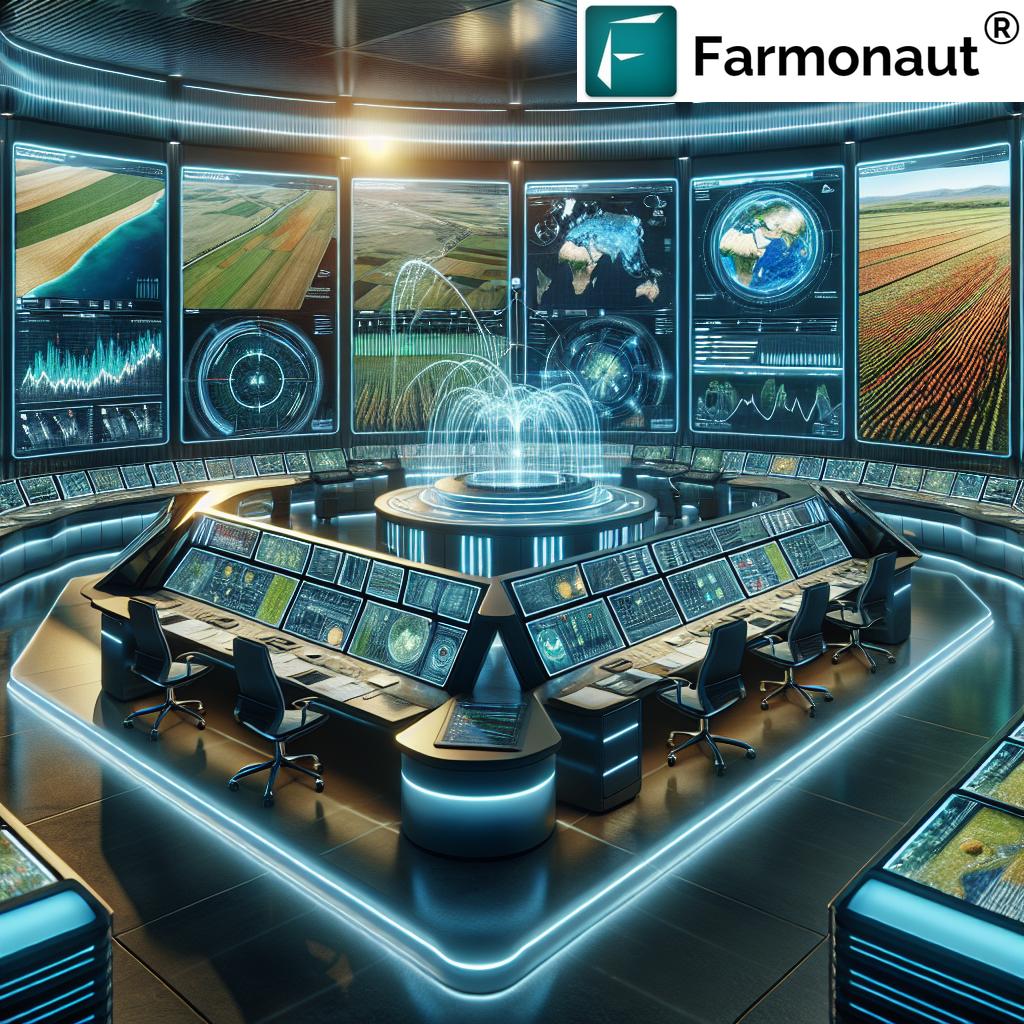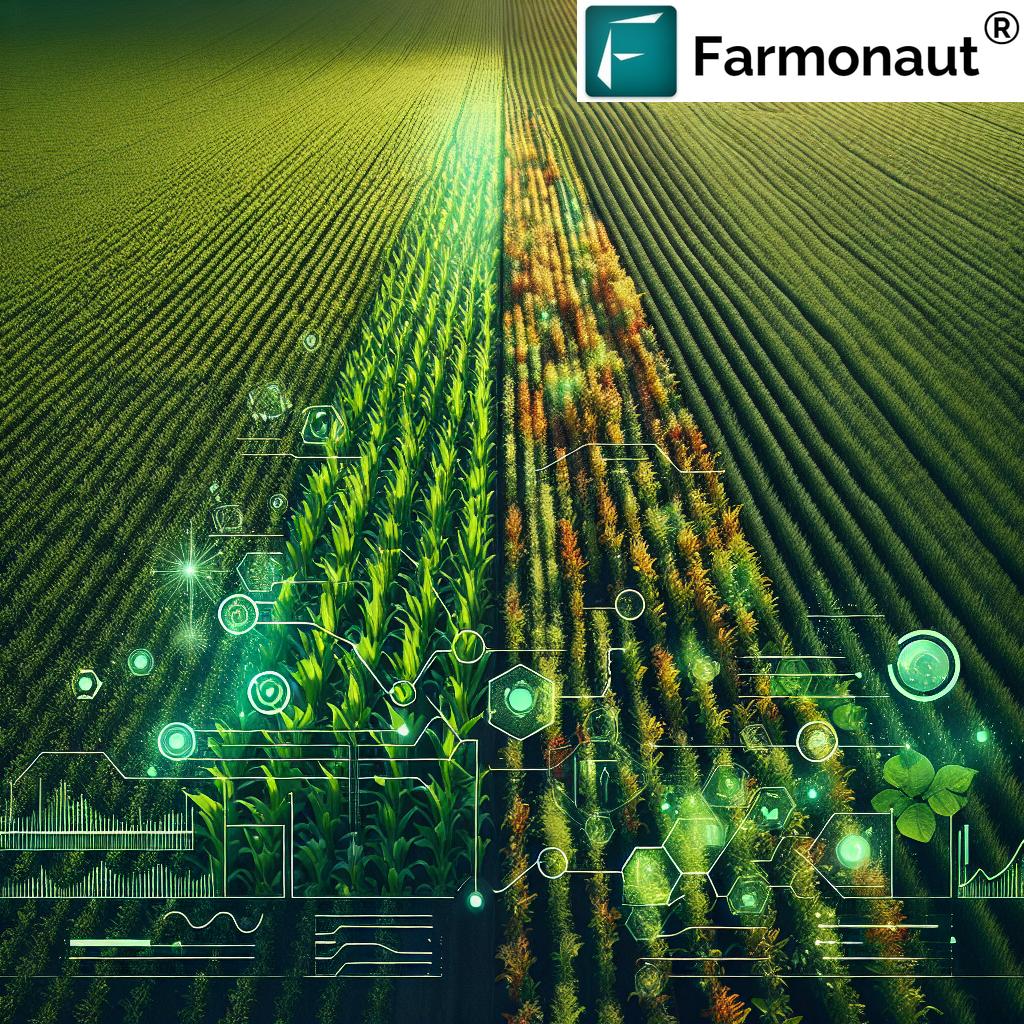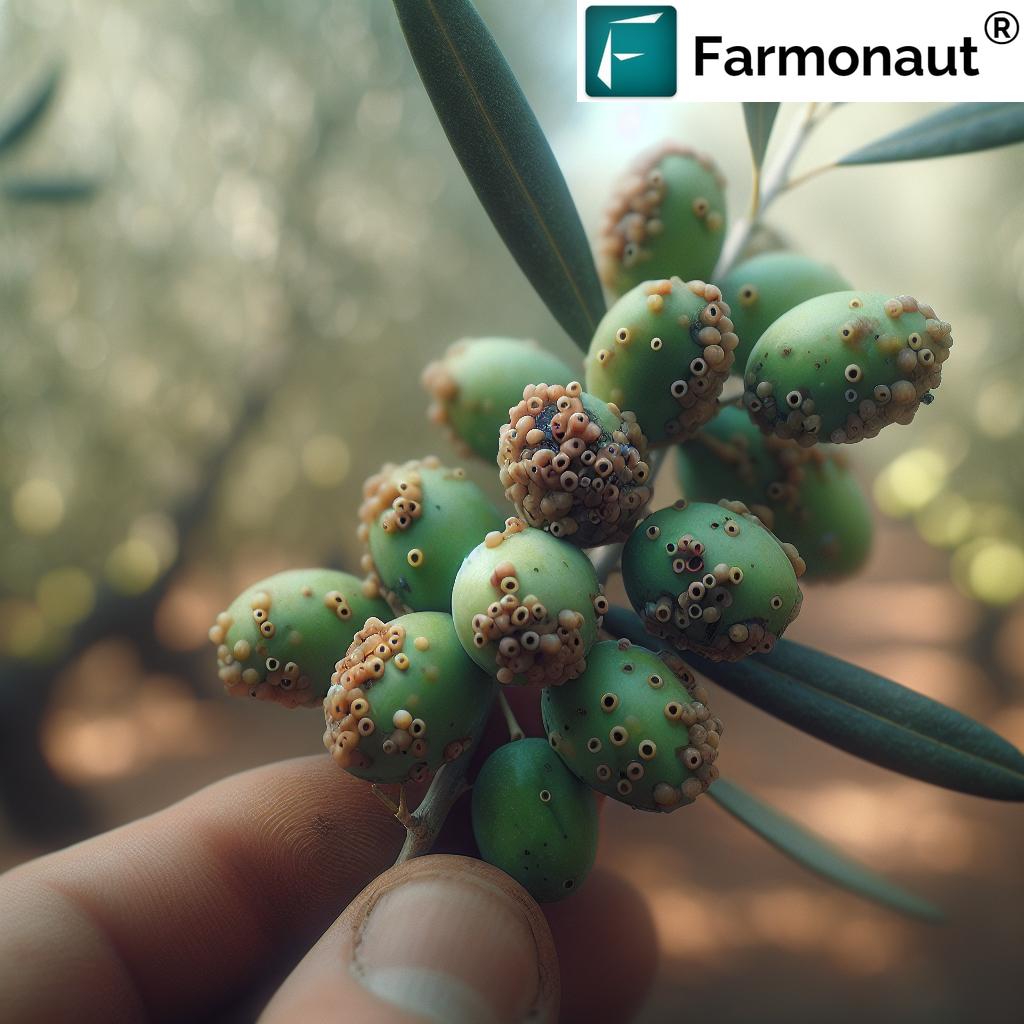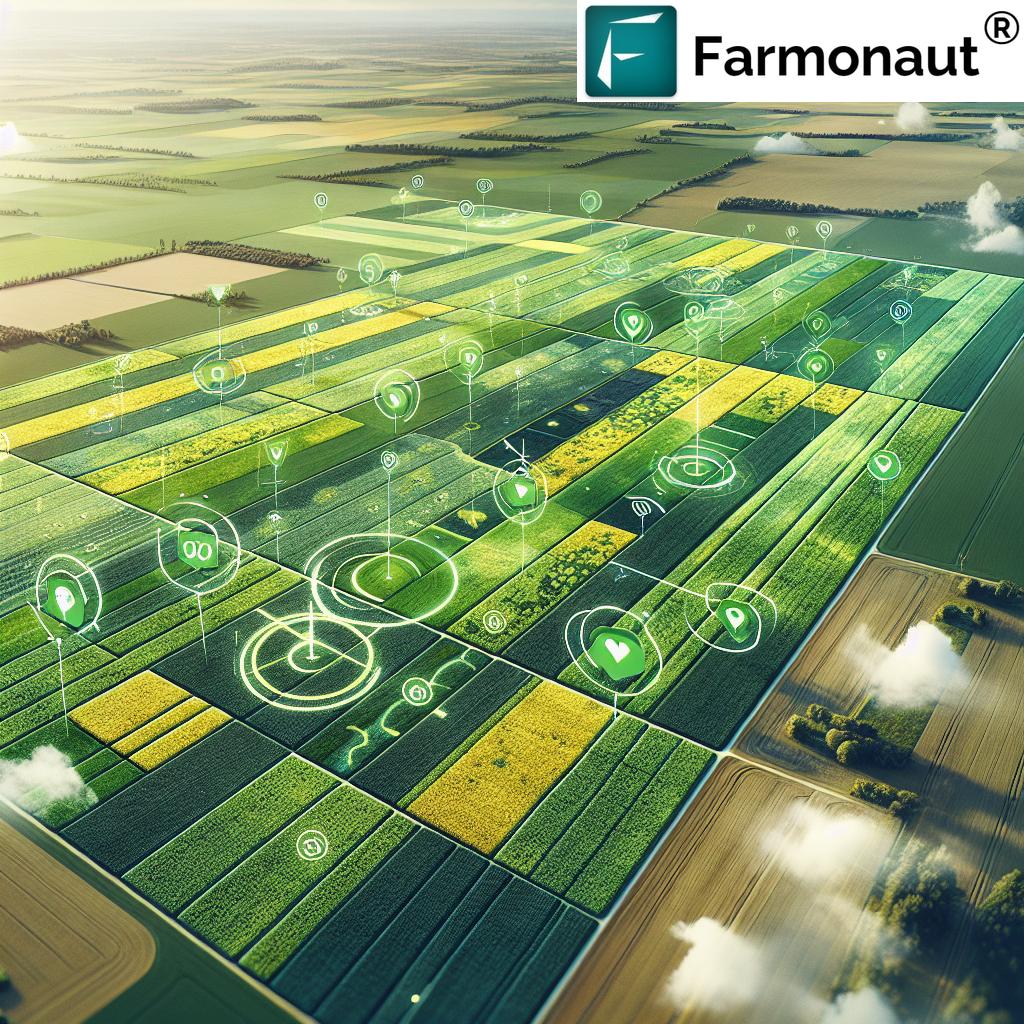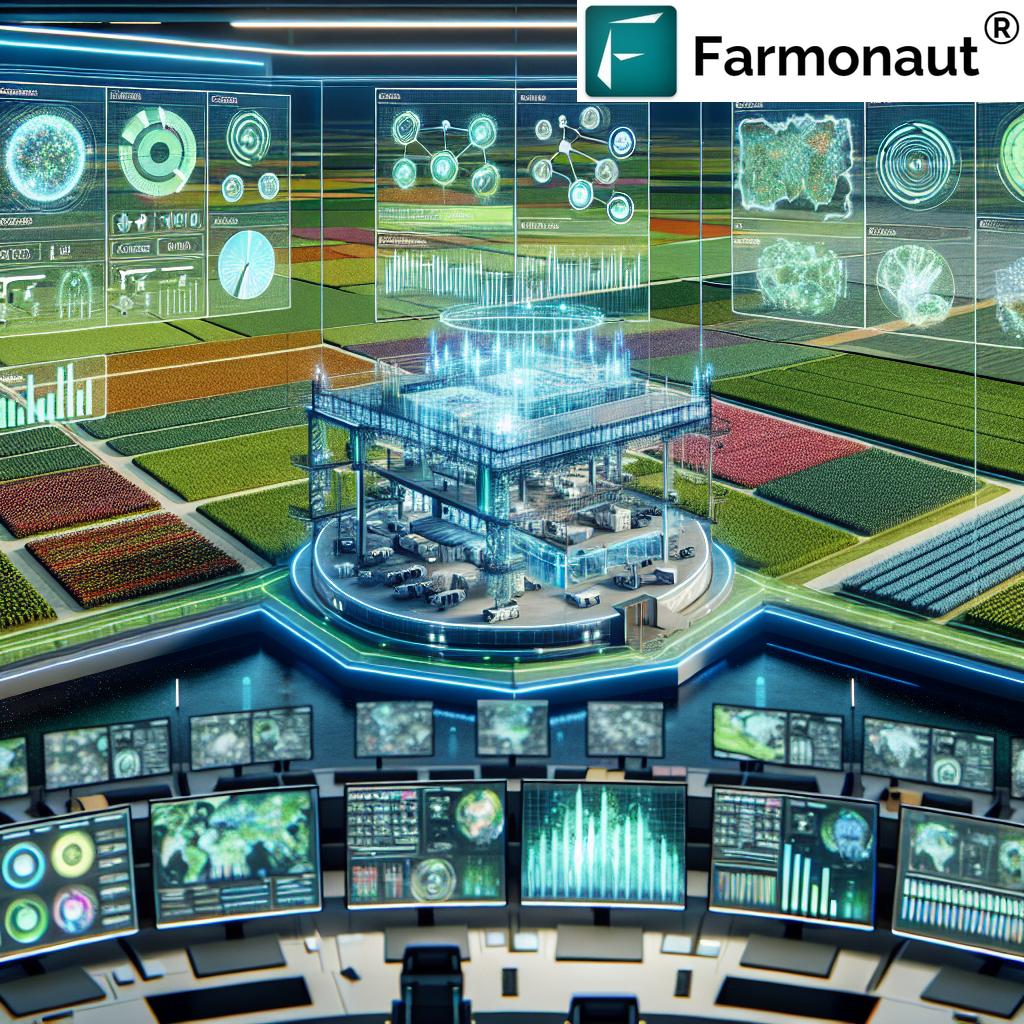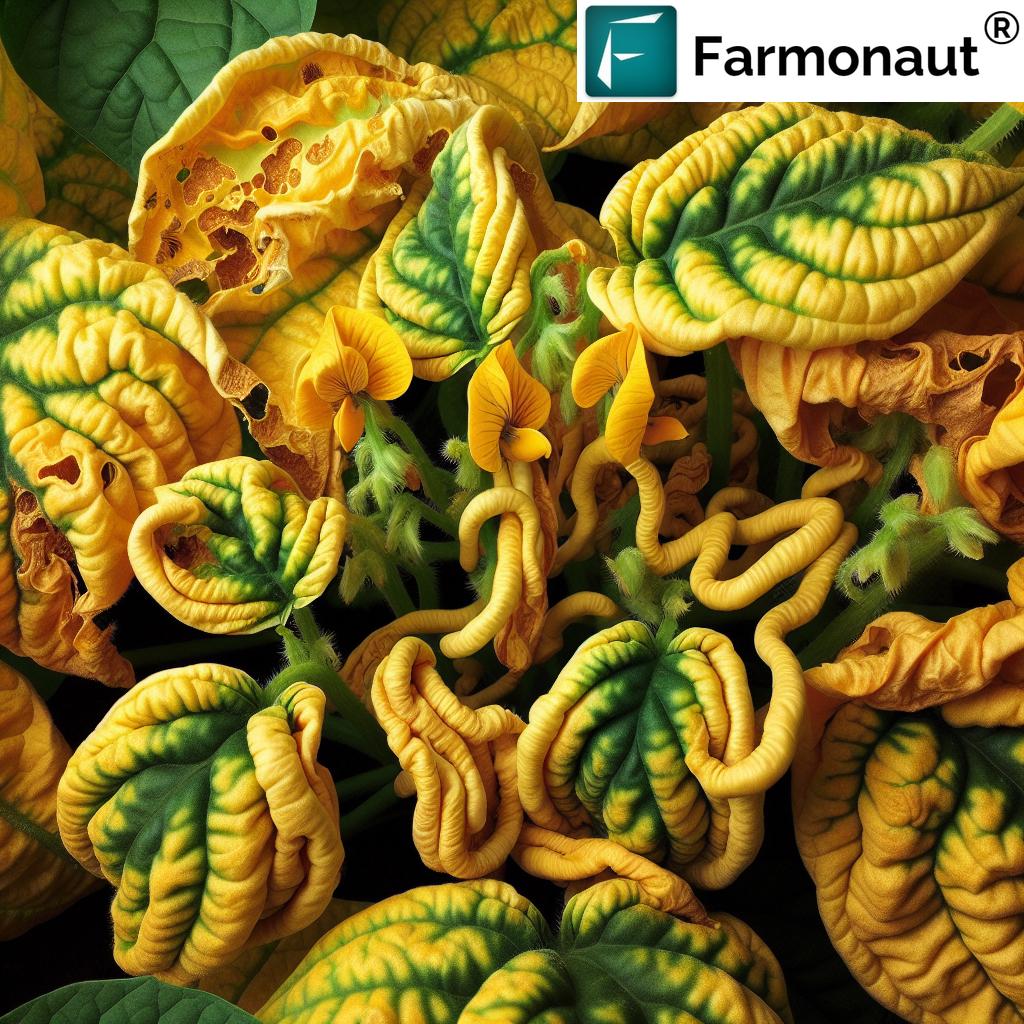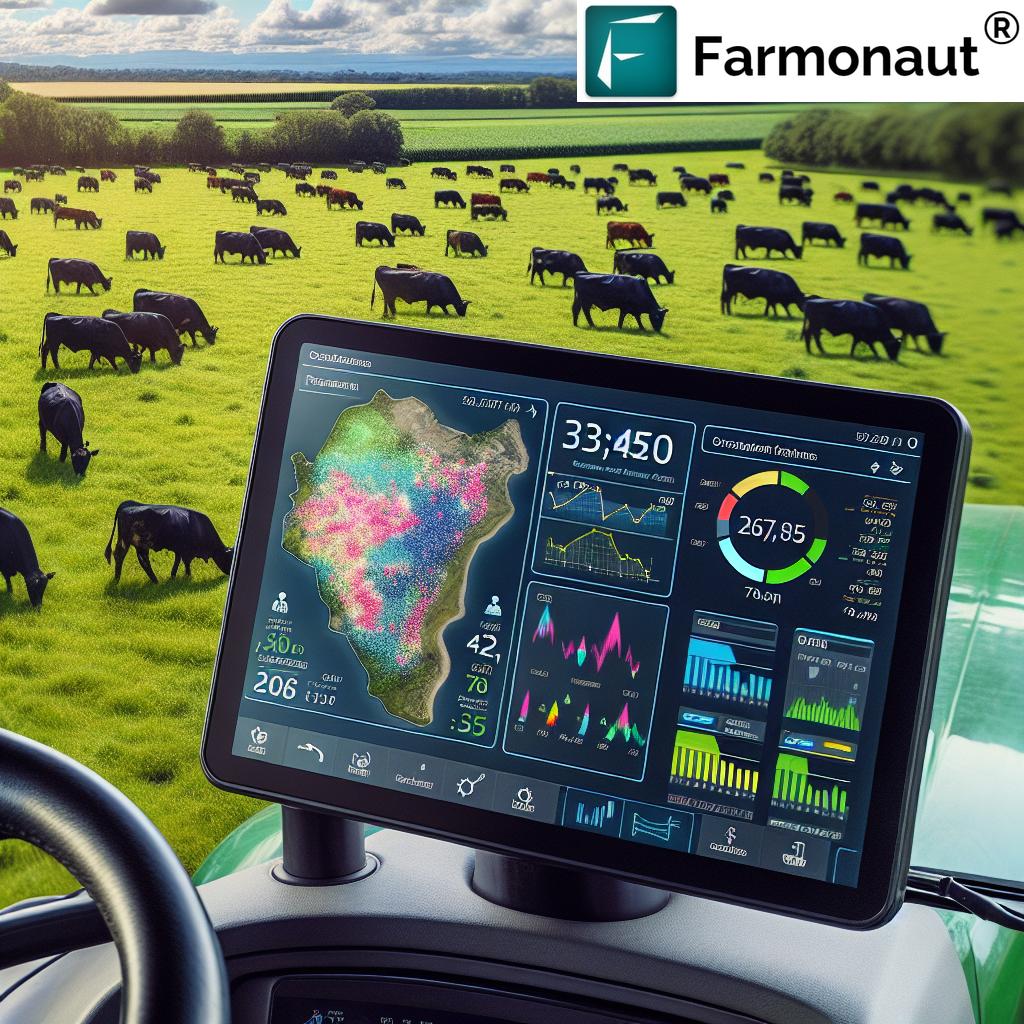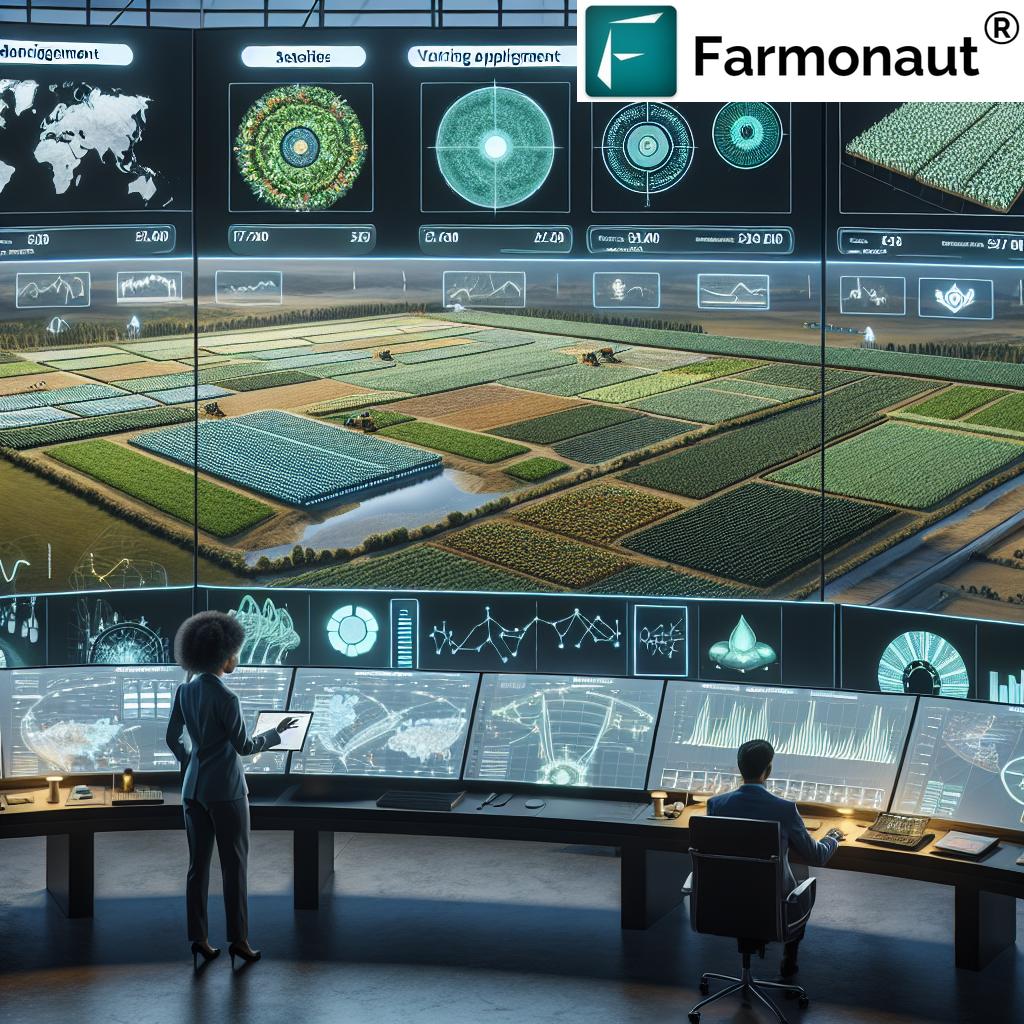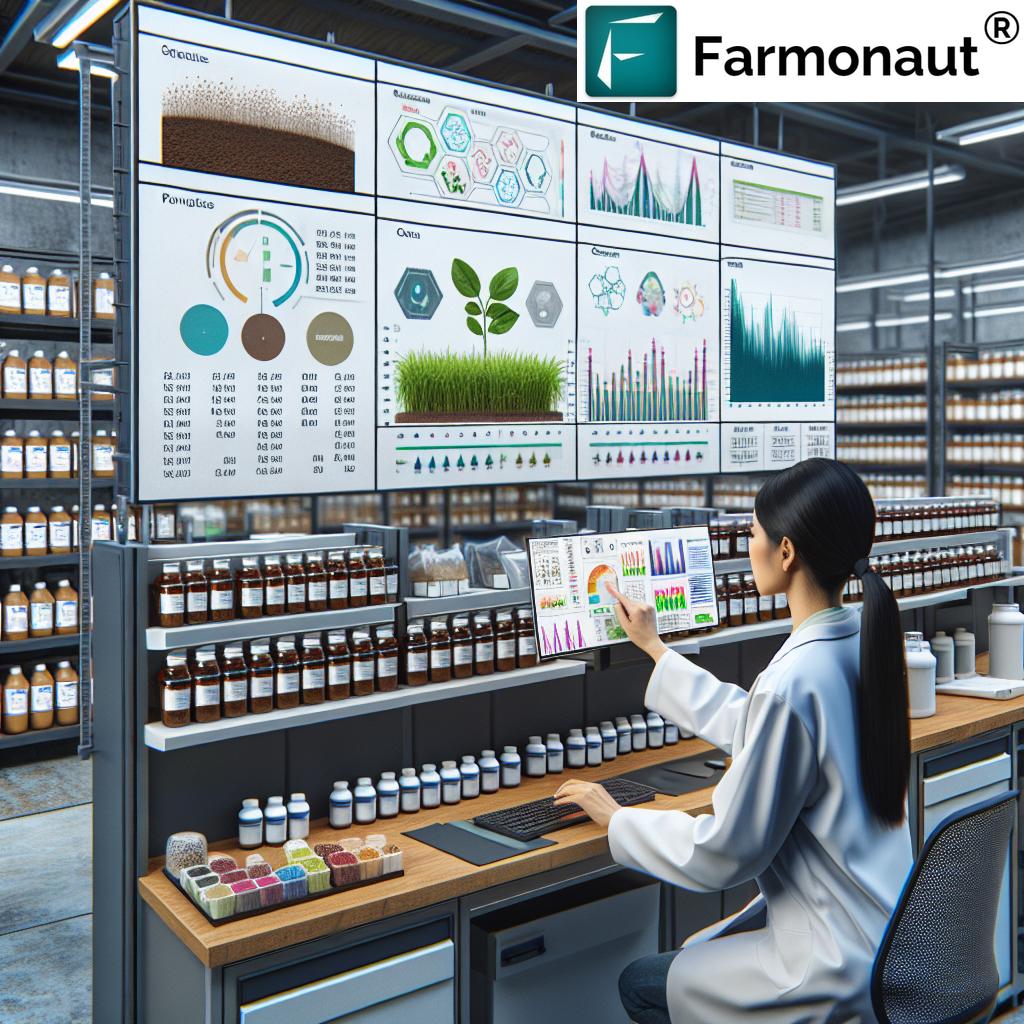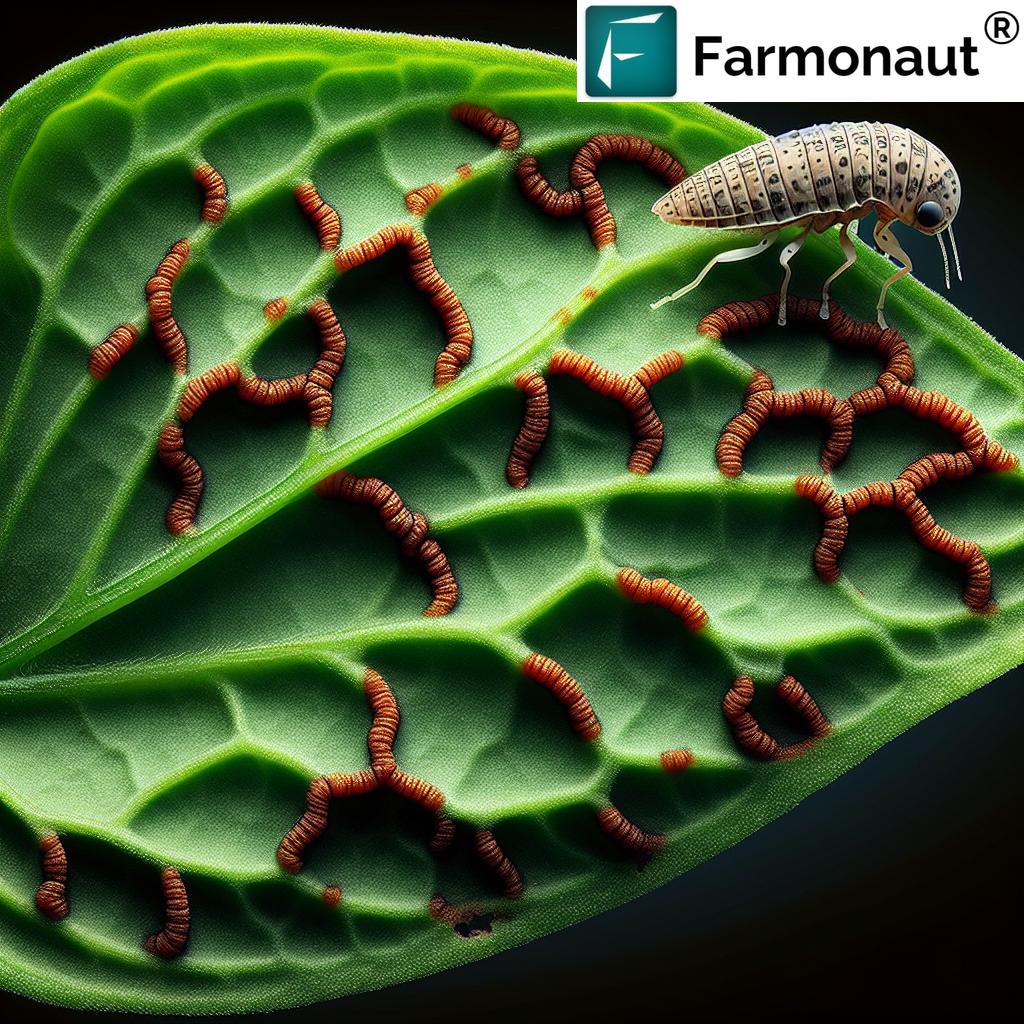Revolutionizing Agriculture: Farmonaut’s Guide to Top AgTech Trends and ROI Analysis for 2025
“By 2025, AI-driven precision farming is projected to increase crop yields by up to 20% while reducing water usage by 30%.”
As we approach 2025, the agricultural landscape is undergoing a profound transformation, driven by cutting-edge technologies and innovative solutions. At Farmonaut, we’re at the forefront of this revolution, leveraging our expertise in satellite-based farm management to guide farmers, agribusinesses, and policymakers through the exciting world of AgTech. In this comprehensive guide, we’ll explore the top agricultural technology trends shaping the future of farming and provide an in-depth ROI analysis to help you make informed decisions about adopting these game-changing technologies.
The AgTech Revolution: An Overview
The agricultural sector is experiencing a technological renaissance, with precision farming innovations and smart agriculture solutions leading the charge. As we delve into the most impactful advancements in the field, it’s crucial to understand how these technologies are reshaping traditional farming practices and driving sustainable agriculture forward.
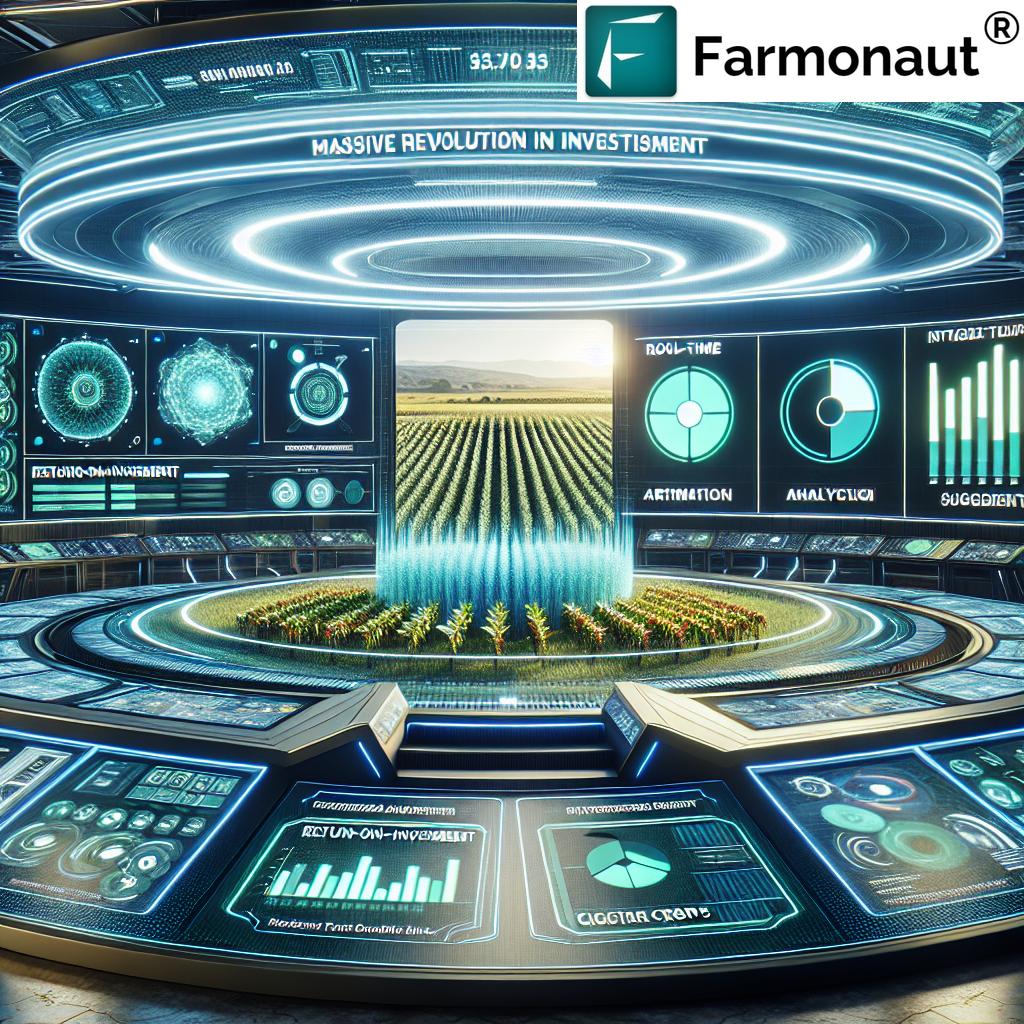
Top AgTech Trends for 2025
Let’s explore the most promising agricultural technology trends that are set to dominate the industry in 2025:
1. Precision Farming: The Foundation of Modern Agriculture
Precision farming lies at the heart of the AgTech revolution, enabling farmers to optimize their operations with unprecedented accuracy. By leveraging data analytics in farming and AI in agriculture, precision farming technologies allow for targeted interventions and resource allocation, resulting in higher yields and reduced environmental impact.
Key components of precision farming include:
- GPS-guided machinery for precise planting and harvesting
- Variable rate technology for optimized fertilizer and pesticide application
- Soil sensors for real-time monitoring of moisture and nutrient levels
At Farmonaut, we offer advanced satellite-based crop health monitoring services that provide farmers with valuable insights into vegetation health (NDVI), soil moisture levels, and other critical metrics. This data-driven approach helps farmers make informed decisions about irrigation, fertilizer usage, and pest management, ultimately optimizing crop yields and reducing resource wastage.
2. Artificial Intelligence and Machine Learning in Agriculture
AI and machine learning are revolutionizing the way we approach farming challenges. These technologies are being integrated into various aspects of agriculture, from crop monitoring to predictive analytics.
Some key applications of AI in agriculture include:
- Automated crop and soil health analysis
- Predictive yield modeling
- Pest and disease detection
- Smart irrigation systems
Our Jeevn AI Advisory System is a prime example of how AI can be harnessed to deliver real-time insights, weather forecasts, and expert crop management strategies to farmers. By analyzing satellite data and other inputs, Jeevn AI generates customized advice that helps improve farm productivity and efficiency.
3. Data Analytics: Unlocking the Power of Agricultural Information
Data analytics in farming has emerged as a crucial tool for decision-making and optimization. By collecting and analyzing vast amounts of data from various sources, farmers can gain valuable insights into their operations and make data-driven decisions.
Key areas where data analytics is making a significant impact include:
- Yield forecasting and optimization
- Supply chain management
- Market trend analysis
- Resource allocation and management
Farmonaut’s platform integrates advanced data analytics capabilities, allowing farmers to leverage the power of big data to improve their operations and increase profitability.
4. Blockchain Technology for Agricultural Traceability
Blockchain technology is revolutionizing supply chain management in agriculture by providing unparalleled transparency and traceability. This technology enables stakeholders to track products from farm to consumer, ensuring food safety and authenticity.
Benefits of blockchain in agriculture include:
- Enhanced food safety and quality control
- Improved supply chain efficiency
- Reduced fraud and counterfeiting
- Increased consumer trust
Our blockchain-based traceability solutions cater to various industries, particularly agriculture, enabling businesses to build trust and reduce fraud in their supply chains.
5. Internet of Things (IoT) in Agriculture
The Internet of Things is transforming farming by connecting various devices and sensors to create a network of smart agricultural systems. IoT devices collect and transmit data in real-time, enabling farmers to monitor and control their operations remotely.
Key applications of IoT in agriculture include:
- Smart irrigation systems
- Livestock monitoring and management
- Greenhouse automation
- Equipment tracking and maintenance
Farmonaut’s fleet and resource management tools leverage IoT technology to help agribusinesses optimize their logistics, reduce operational costs, and improve overall management of agricultural machinery.
“Farmonaut’s analysis predicts a 40% ROI within 2 years for farmers adopting data analytics and smart agriculture solutions.”
ROI Analysis: Investing in AgTech
As we explore these exciting agricultural technology trends, it’s crucial to consider the return on investment (ROI) for implementing these solutions. Our analysis shows that while initial investments may be significant, the long-term benefits of adopting AgTech solutions far outweigh the costs.
| AgTech Trend | Description | Estimated Implementation Cost | Potential ROI (%) | Adoption Challenges |
|---|---|---|---|---|
| Precision Farming | Use of GPS, sensors, and data analytics for targeted farming practices | $20,000 – $100,000 | 15-25% | High initial cost, technical expertise required |
| AI in Agriculture | AI-powered systems for crop monitoring, yield prediction, and pest management | $15,000 – $75,000 | 20-30% | Data quality issues, integration with existing systems |
| Data Analytics in Farming | Advanced data analysis for informed decision-making and optimization | $10,000 – $50,000 | 25-35% | Data collection and management, analytical skills gap |
| Smart Irrigation Systems | IoT-enabled irrigation systems for water conservation and optimal crop growth | $5,000 – $30,000 | 10-20% | Infrastructure requirements, maintenance costs |
| Drone Technology for Crop Monitoring | Use of drones for aerial imaging and crop health assessment | $3,000 – $20,000 | 15-25% | Regulatory constraints, pilot training needs |
It’s important to note that ROI can vary significantly depending on factors such as farm size, crop type, and existing infrastructure. We recommend conducting a thorough analysis of your specific situation before making substantial investments in AgTech solutions.
Challenges and Opportunities in Implementing AgTech
While the benefits of adopting agricultural technology are clear, there are several challenges that farmers and agribusinesses may face during implementation:
- Initial investment costs
- Technical expertise and training requirements
- Data privacy and security concerns
- Integration with existing systems and practices
- Regulatory compliance
However, these challenges also present opportunities for innovation and growth. By addressing these issues, AgTech companies like Farmonaut are driving the development of more accessible, user-friendly, and cost-effective solutions.
Farmonaut’s Role in the AgTech Revolution
At Farmonaut, we’re committed to making precision agriculture affordable and accessible to farmers worldwide. Our platform integrates many of the top AgTech trends discussed in this guide, offering a comprehensive solution for modern farming challenges.
Key features of our platform include:
- Satellite-Based Crop Health Monitoring: Real-time insights into vegetation health and soil moisture levels
- Jeevn AI Advisory System: Personalized farm advisory powered by artificial intelligence
- Blockchain-Based Product Traceability: Ensuring transparency and trust in agricultural supply chains
- Fleet and Resource Management: Optimizing logistics and machinery usage for agribusinesses
- Carbon Footprinting: Helping businesses monitor and reduce their environmental impact
By leveraging these technologies, we’re helping farmers increase productivity, reduce costs, and adopt more sustainable farming practices.
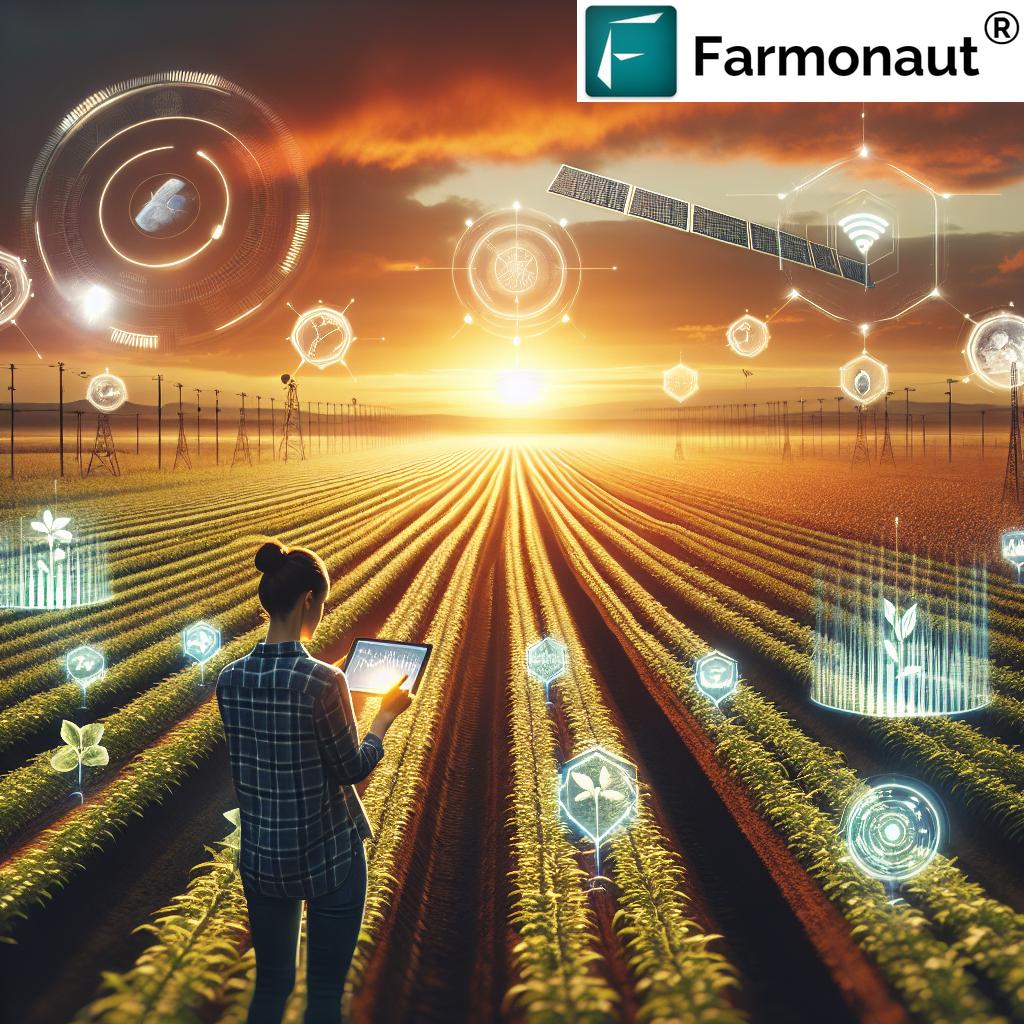
The Future of Agriculture: Sustainable and Tech-Driven
As we look towards 2025 and beyond, it’s clear that the future of agriculture lies in the integration of advanced technologies and sustainable practices. By embracing AgTech solutions, farmers can not only increase their productivity and profitability but also contribute to global food security and environmental conservation.
Key trends to watch in the coming years include:
- Increased adoption of vertical farming and urban agriculture
- Development of more resilient and climate-adaptive crop varieties through genetic engineering
- Integration of renewable energy sources in agricultural operations
- Expansion of precision livestock farming techniques
- Growth of AgTech startups and increased investment in agricultural innovation
Conclusion: Embracing the AgTech Revolution
The agricultural technology trends and ROI analysis presented in this guide highlight the immense potential for transformation within the farming industry. As we navigate the rapidly evolving world of AgTech, it’s crucial for farmers, agribusinesses, and policymakers to stay informed and adapt to these changes.
At Farmonaut, we’re committed to leading this revolution by providing innovative, accessible, and cost-effective solutions that empower farmers to thrive in the digital age. By embracing these technologies and partnering with forward-thinking companies like Farmonaut, the agricultural sector can meet the challenges of the 21st century while building a more sustainable and productive future for all.
Ready to join the AgTech revolution? Explore our range of solutions and see how Farmonaut can help transform your farming operations:
For developers interested in integrating our powerful satellite and weather data into their own applications, check out our API and API Developer Docs.
Farmonaut Subscriptions
Earn With Farmonaut
Join our affiliate program and earn while helping farmers save! Earn With Farmonaut
Earn 20% recurring commission with Farmonaut’s affiliate program by sharing your promo code and helping farmers save 10%. Onboard 10 Elite farmers monthly to earn a minimum of $148,000 annually—start now and grow your income!
Frequently Asked Questions
- What is precision agriculture?
Precision agriculture is a farming management concept that uses technology to observe, measure, and respond to variability in crops. It aims to optimize returns on inputs while preserving resources. - How does AI benefit agriculture?
AI in agriculture helps in crop and soil monitoring, predictive analytics for weather and yield, automated machinery, and pest detection, leading to increased efficiency and productivity. - What is the role of blockchain in agriculture?
Blockchain in agriculture ensures transparency and traceability in the supply chain, from farm to consumer, enhancing food safety and reducing fraud. - How can farmers start implementing AgTech solutions?
Farmers can start by identifying their specific needs, researching available technologies, and gradually implementing solutions that offer the best ROI for their operations. - What are the environmental benefits of AgTech?
AgTech solutions can lead to more efficient use of resources, reduced chemical usage, and lower carbon emissions, contributing to more sustainable farming practices.
As we continue to innovate and develop new solutions, Farmonaut remains committed to empowering farmers and revolutionizing agriculture through technology. Stay tuned for more updates and insights as we work towards a more sustainable and productive future for global agriculture.











